第7章 THE SECOND(4)
It gives a measure of the newness of our modern ideas of the State to remember that the very beginnings of public education lie within my father's lifetime, and that many most intelligent and patriotic people were shocked beyond measure at the State doing anything of the sort.When he was born, totally illiterate people who could neither read a book nor write more than perhaps a clumsy signature, were to be found everywhere in England; and great masses of the population were getting no instruction at all.Only a few schools flourished upon the patronage of exceptional parents; all over the country the old endowed grammar schools were to be found sinking and dwindling; many of them had closed altogether.In the new great centres of population multitudes of children were sweated in the factories, darkly ignorant and wretched and the under-equipped and under-staffed National and British schools, supported by voluntary contributions and sectarian rivalries, made an ineffectual fight against this festering darkness.It was a condition of affairs clamouring for remedies, but there was an immense amount of indifference and prejudice to be overcome before any remedies were possible.Perhaps some day some industrious and lucid historian will disentangle all the muddle of impulses and antagonisms, the commercialism, utilitarianism, obstinate conservatism, humanitarian enthusiasm, out of which our present educational organisation arose.
I have long since come to believe it necessary that all new social institutions should be born in confusion, and that at first they should present chiefly crude and ridiculous aspects.The distrust of government in the Victorian days was far too great, and the general intelligence far too low, to permit the State to go about the new business it was taking up in a businesslike way, to train teachers, build and equip schools, endow pedagogic research, and provide properly written school-books.These things it was felt MUST be provided by individual and local effort, and since it was manifest that it was individual and local effort that were in default, it was reluctantly agreed to stimulate them by money payments.The State set up a machinery of examination both in Science and Art and for the elementary schools; and payments, known technically as grants, were made in accordance with the examination results attained, to such schools as Providence might see fit to send into the world.In this way it was felt the Demand would be established that would, according to the beliefs of that time, inevitably ensure the Supply.An industry of "Grant earning" was created, and this would give education as a necessary by-product.
In the end this belief was found to need qualification, but Grant-earning was still in full activity when I was a small boy.So far as the Science and Art Department and my father are concerned, the task of examination was entrusted to eminent scientific men, for the most part quite unaccustomed to teaching.You see, if they also were teaching similar classes to those they examined, it was feared that injustice might be done.Year after year these eminent persons set questions and employed subordinates to read and mark the increasing thousands of answers that ensued, and having no doubt the national ideal of fairness well developed in their minds, they were careful each year to re-read the preceding papers before composing the current one, in order to see what it was usual to ask.As a result of this, in the course of a few years the recurrence and permutation of questions became almost calculable, and since the practical object of the teaching was to teach people not science, but how to write answers to these questions, the industry of Grant-earning assumed a form easily distinguished from any kind of genuine education whatever.
Other remarkable compromises had also to be made with the spirit of the age.The unfortunate conflict between Religion and Science prevalent at this time was mitigated, if I remember rightly, by making graduates in arts and priests in the established church Science Teachers EX OFFICIO, and leaving local and private enterprise to provide schools, diagrams, books, material, according to the conceptions of efficiency prevalent in the district.Private enterprise made a particularly good thing of the books.A number of competing firms of publishers sprang into existence specialising in Science and Art Department work; they set themselves to produce text-books that should supply exactly the quantity and quality of knowledge necessary for every stage of each of five and twenty subjects into which desirable science was divided, and copies and models and instructions that should give precisely the method and gestures esteemed as proficiency in art.Every section of each book was written in the idiom found to be most satisfactory to the examiners, and test questions extracted from papers set in former years were appended to every chapter.By means of these last the teacher was able to train his class to the very highest level of grant-earning efficiency, and very naturally he cast all other methods of exposition aside.First he posed his pupils with questions and then dictated model replies.